Mahathir’s new policy is…to make sure that no one will stay as PM as long as he did?
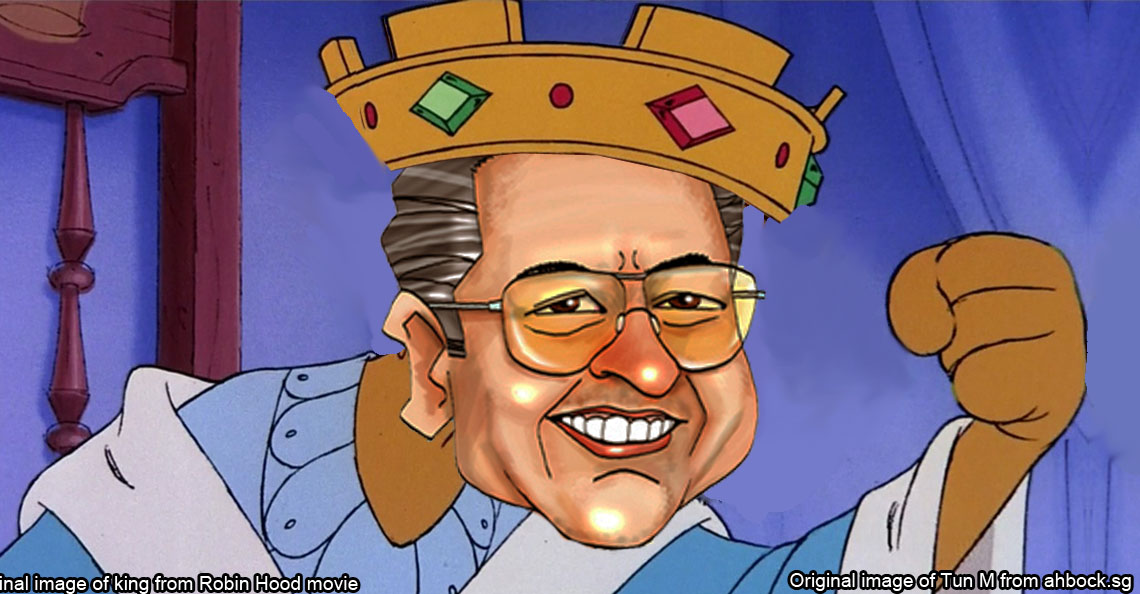
- 2.4KShares
- Facebook2.4K
- Twitter3
- Email14
- WhatsApp33
When it comes to how long one has been Prime Minister, no one has even come close to the 22 years that Tun Dr Mahathir spent in office. His time as PM between 1981-2003 is nearly twice as long as the other long-serving PM, Tunku Abdul Rahman, who was PM was 13 years from 1957-1970.
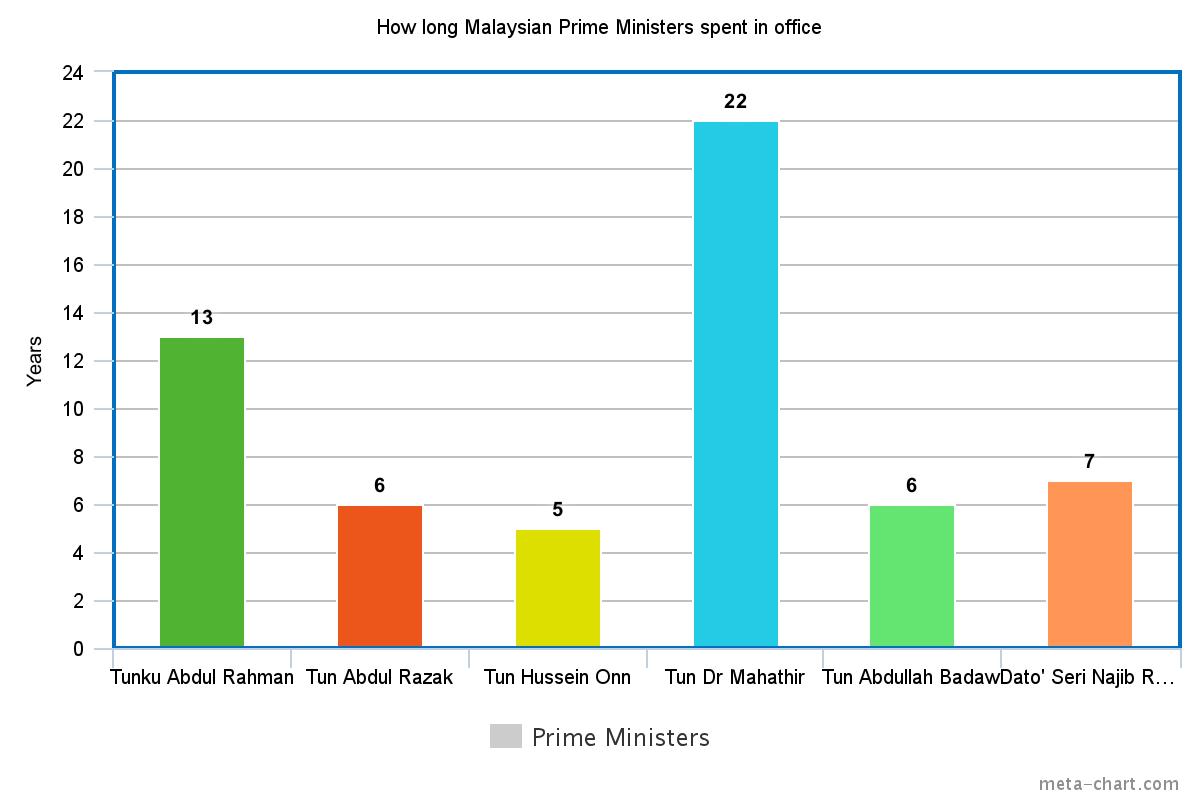
But for the one who stayed the longest, it did seem a bit shocking when his new party, the Parti Pribumi Bersatu Malaysia (or just Bersatu), recently announced that if they were to be the next gomen, they would propose that a PM can only be PM for a fixed amount of time.
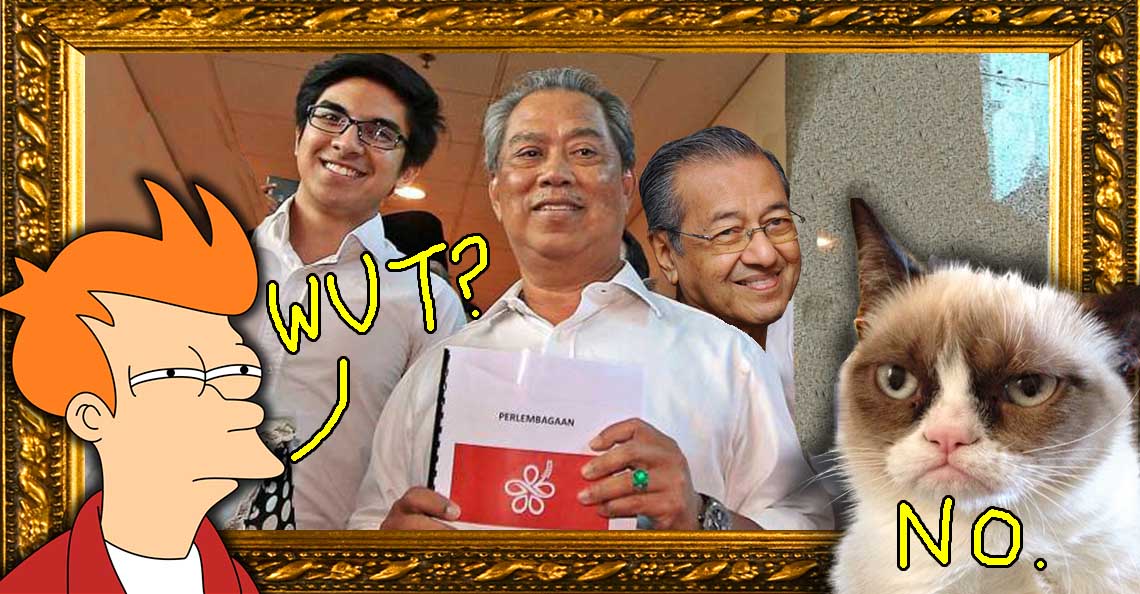
“Insya’allah if we succeed with the permission of Allah and the support of you all, if we can set up government after the 14th general election, we will suggest that the duration of the prime minister be limited to two terms and not exceeding 10 years.” – Tun M’s son, Datuk Seri Mukhriz Mahathir, as quoted by The Malay Mail Online
In other words, they are proposing that after a certain amount of years, a person can no longer continue to be the Prime Minister, and has to step down.
Chup, we can actually give our PM an expiry date?

In this case, yes, IF we implement something known as a “term limit” which is basically a law that prevents a person from running for a particular position after they reach a certain quota. Bersatu is proposing that a person can stay as PM for only 2 terms, in other words, if the person wins 2 General Elections. After that, the person can no longer be PM and even if the party wins a 3rd General Election, it would have to pick a new PM. And although Bersatu doesn’t specify, it seems like they mean to make it a law of Malaysia, rather than something only within their party.
Sounds like a pretty interesting idea right? But why didn’t we implement it a lot sooner, like when Malaya achieved independence? Well there isn’t an explanation why but it’s possible that we never had a term limit because our country’s gomen is modeled after the British Westminster System.

And guess what, the UK currently does not practice a term limit as well!
But many other countries practice term limits
The concept of putting a term limit on national leaders is actually not new at all. Many countries have some sort of limitation on how long a person can stay an elected leader. Take for example, the United States of America. The two presidential candidates this time round are Donald Trump and Hillary Clinton instead of Barack Obama because Obama had reached his term limit.
https://www.youtube.com/watch?v=Da4bxjCeLmU
And despite being around since 1776, America only started having a term limit for its presidents after the tenure of Franklin D. Roosevelt, who was elected President for 3 terms.
But we actually don’t have to look that far for an example. Our neighbours, Thailand, Indonesia, the Philippines, and Vietnam all have term limits for the head of their country. (Singapore doesn’t though, wonder why. 😉 )
In Indonesia’s case, they actually implemented the term limit after the reign of Suharto, the former President of Indonesia who reigned from 1967-1998. After 30 years of his authoritarian rule, he resigned after a series of events led to him resigning. And because of his reign, Indonesia decided “You know what? Enough is enough. Suharto was in power too long, as was his predecessor Soekarno. Let’s limit how long a President can stay in power.”
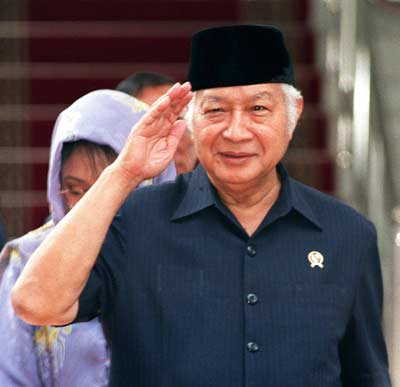
And Indonesia has shown a lot of resolve to keep it that way. When a politician once suggested that President Susilo Bambang Yudhoyono be allowed to run for a third term, they didn’t take it very well.
So is it a good thing to give the PM a time limit?
Well, it seems that just like many other things, there are pros and cons to having a term limit. Here are some of the reasons for having a term limit:
- Fresh blood – Not literally, but it actually means to provide the constant opportunity for new ideas and new ways of doing things.
- Prevent careerism – So that politicians won’t focus on staying in power, but serving the public.
- Prevent corruption – If people are prevented from staying too long in a position, they also have less of a chance to get too familiar and take advantage of it.
- Wait you also kena – The leader will try their best to put good laws in place because eventually, they will have to live with those laws as a regular citizen.
In a nutshell, you get a system where one person can never stay in power forever, which ensures that other well-meaning citizens would also get a chance to rise up and take part in building the country.
But there are also possible downsides to term limits:
- Good but cannot stay – It doesn’t allow a person to continue in a position EVEN IF he or she is doing a terrific job at it.
- Short-sightedness – Term limits would mean that the elected official may make decisions to make him or her look good in the short run, and choose to forgo decisions that may benefit the country in the long run.
Thus as ironic as it may sound, a term limit may end up….limiting what a leader can do.
But thinking about it, while these may sound like pros and cons to us, to any person aspiring to lead a country, these may all seem like cons. So before we ponder on whether the pros of having a term limit outweighs the cons, perhaps there is one last thing to consider.
Why da heck would Tun M’s party want to put a limit on the PM?
Because if Bersatu gets into power and implements this term limit, the people that are at the biggest disadvantage is the party itself, simply because it’s limiting the term of its leaders. Besides that, it’s also really ironic that the man who himself was a long-running leader (and who often refused to step down or give in even in times of crises) would be supportive of this idea.
But the party actually do address it.
“Maybe there will be those who will say that (former premier) Dr Mahathir Mohamad was the prime minister for 22 years.
But that was then. After what has happened with (current prime minister) Najib Razak, this has to change. We don’t want the same thing to happen again.” – Datuk Seri Mukhriz Mahathir, as quoted by Free Malaysia Today
So maybe it’s not about whether the pros outweigh the cons but whether we need it or not. And with the Prime Minister’s position currently getting stronger and stronger, perhaps a measure that reduces its power isn’t all that bad a thing.
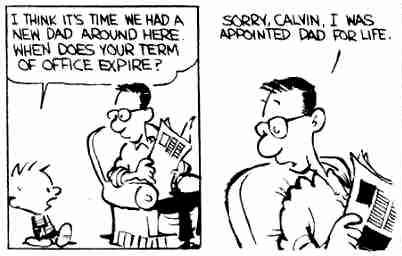
- 2.4KShares
- Facebook2.4K
- Twitter3
- Email14
- WhatsApp33



